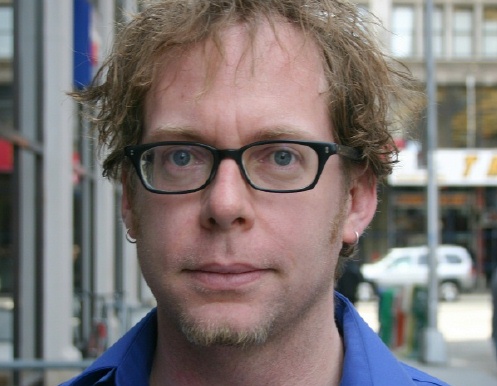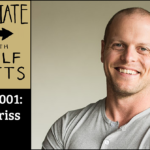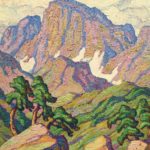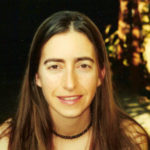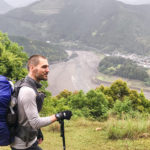David Farley is the author of An Irreverent Curiosity: In Search of the Church’s Strangest Relic in Italy’s Oddest Town and the co-editor of Travelers’ Tales Prague and the Czech Republic: True Stories
. His writing appears in the New York Times, the Washington Post, Conde Nast Traveler, Arthur Frommer’s Budget Travel, National Geographic Traveler, New York, and Slate.com, among other publications. He writes the “Moveable Feast” column for WorldHum.com and teaches travel writing at New York University. He’s also the founder and host of the Restless Legs Reading Series.
How did you get started traveling?
When I was four years old, living atop a relatively populated hill in Dubuque, Iowa, I’d often stare into the distance at the rolling hills lined with twisty streets that were flanked by one and two-story houses. I had such an urge to find out what was beyond those hills. Then, when I was six years old, my family moved to the Los Angeles suburbs which were largely devoid of intrigue: the streets were a flat grid plan, the strip malls were crammed with neon-lit chain stores, and most of the people I grew up with lacked a curiosity about the outside world. Then when I was 20 years old a trip to Central Europe stoked my wanderlust for good. I realized that I wanted to carve out a life for myself that involved spending as much time as possible in places like this. So, after graduating from college, I moved to Prague for a few years.
How did you get started writing?
I’m not one of those people who can boast that they’d been writing since they were three days old. When I lived in the Czech Republic there were several times when I thought that I’d wished I was a writer, having just recognized that whatever bizarre experience I’d just witnessed would make for a great story. After Prague, I moved to San Francisco to go to grad school and I somehow fell into a job as an editor at a new city magazine. I wasn’t really qualified for the job, but the person doing the hiring somehow liked me and took a chance. I wrote articles on dining, nightlife, art, music, and — eventually — travel and learned a lot about the craft of writing on the job. Not forgetting that I wanted a life that involved as much travel as possible, I quit the magazine job after a year and a half and moved to Paris and Rome for a while, which gave me ample material to launch a career as a freelance writer with a focus on travel.
What do you consider your first “break” as a writer?
One thing that makes breaking into travel writing somewhat egalitarian — at least in theory — is that American newspaper travel editors don’t want to be pitched. They want writers to send in the finished piece, totally polished, and ready to go. This means the editor isn’t necessarily interested in where (or if) you’ve been published in the past. If the piece is good (and there’s a need for it), the editor will buy it. This happened to me when I sent a story to the Chicago Tribune travel section about getting married in Rome. I went from having some clips at a city magazine (that few knew outside of the Bay Area had heard of) to having a clip in a nationally known newspaper. Then, after you have a working relationship with the editor, you can start pitching them.
As a traveler and fact/story gatherer, what is your biggest challenge on the road?
Having the knowledge to write an article with authority — as if I’d made that place my home for the last few years — is a difficult but fun challenge. The more pre-trip research you do, the better off you are when you hit the ground. I try to read about every aspect of a place — the dining, nightlife, and art scenes, politics, history, etc. Then I supplement all that by talking to as many people there as possible. If you’re working on a magazine or newspaper piece, it’s important to have an angle before you arrive. That angle will dictate where you go, who you talk to, and the types of questions you ask.
What is your biggest challenge in the research and writing process?
Food, wine, living in New York, Facebook, email? I have the usual problems with procrastination and letting certain distractions into my life that keep me from finishing an article. I always finish by the deadline, but without the distractions, I’d probably be a much quicker writer.
What is your biggest challenge from a business standpoint?
It’s nearly impossible to make a (decent) living with a focus exclusively on travel. For that reason, when I’m not on the road, I write about the New York dining scene and other stuff. I think it’s important to have a couple thematic beats that you can focus on at home. That way you can make money when you’re not traveling and you can always shift that same theme to the place you’re traveling to. For example, when I go to, say, Rome or Mumbai, I’ll naturally focus on food while I’m there.
Have you ever done other work to make ends meet?
For the last six years I’ve taught writing at Gotham Writers’ Workshop and New York University, but I consider that part of the writer experience.
What travel authors or books might you recommend and/or have influenced you?
For me, there are some writers that every time I read their stuff I want to put the book down and start writing right away. Joan Didion, Susan Orlean, Bill Bryson, Simon Winchester, David Sedaris, Jan Morris, J. Maarten Troost, and Francine Prose have had that effect on me. Also, I happen to be graced with many friends who are very talented writers and they’ve been a huge inspiration for me.
What advice and/or warnings would you give to someone who is considering going into travel writing?
Here’s a list off the top of my head: It’s important to have broad intellectual interests (be an intellectual dilettante). Develop thick skin — there’s a ton of rejection in this business; know that even the successful writers get rejected frequently. Talk to writers more successful than you are and ask lots of questions. Read fiction and other genres in addition to travel writing. Approach travel writing for the art of the genre — not just to fetishize free travel; you can smell a hack travel writer from a thousand feet away and it’s not a pretty scent. Determination is key.
What is the biggest reward of life as a travel writer?
The times I feel like I’m really living are when I’m traveling. So being a travel writer — and being able to exercise my curiosity — offers a continual feeling of bliss that, so far, only recreational drugs can compete with.

